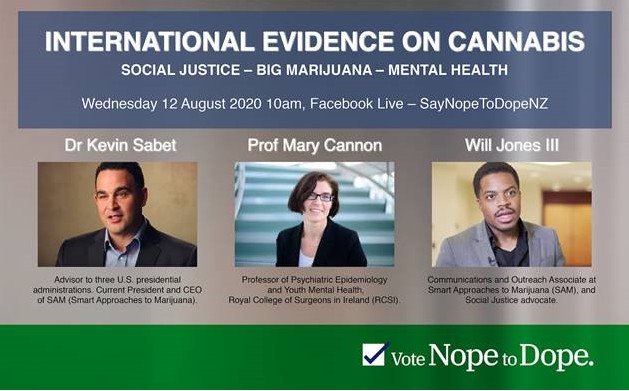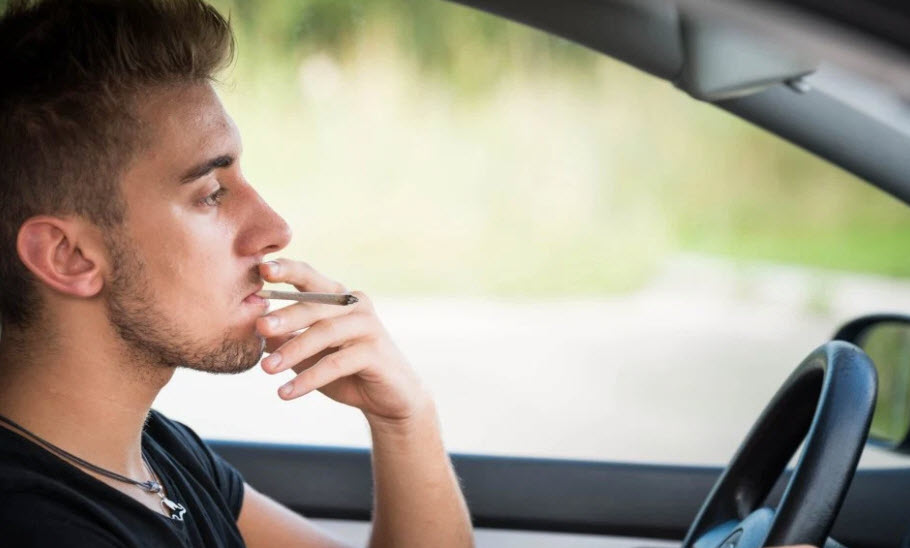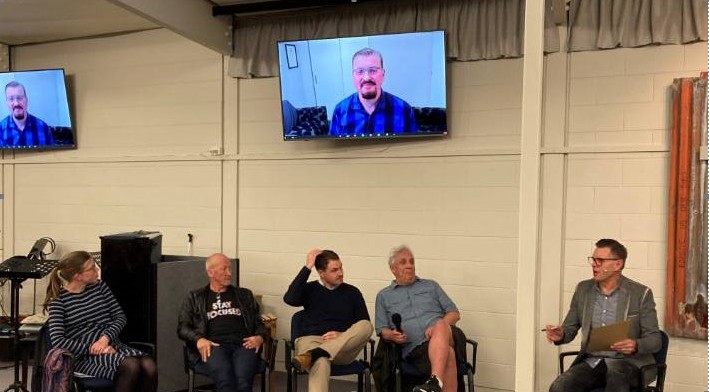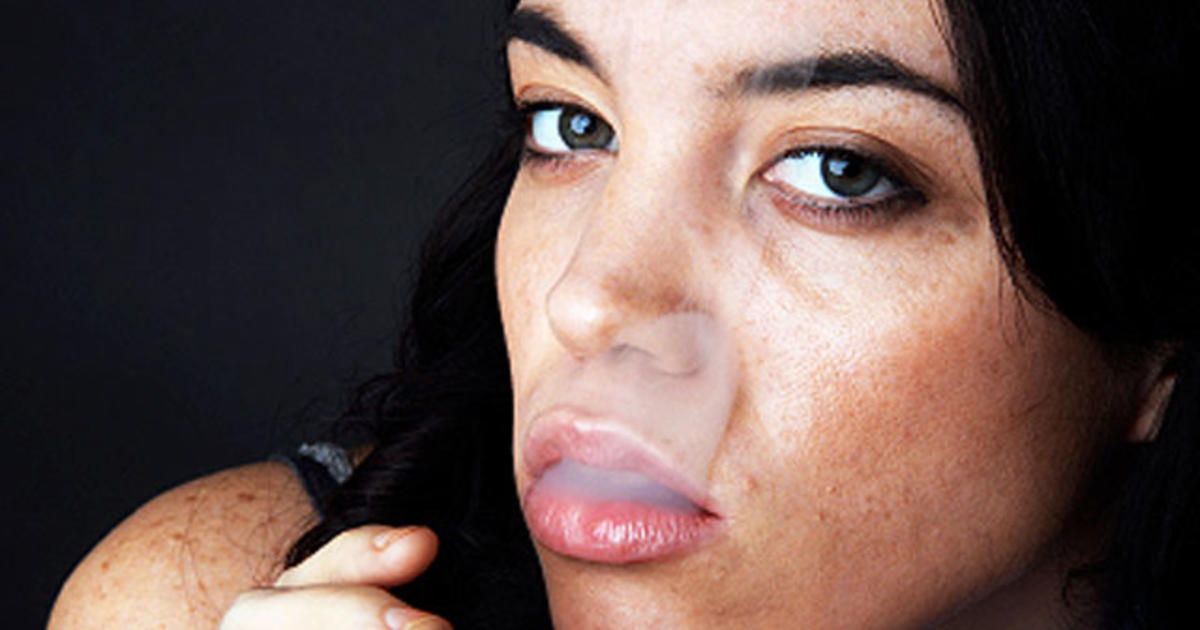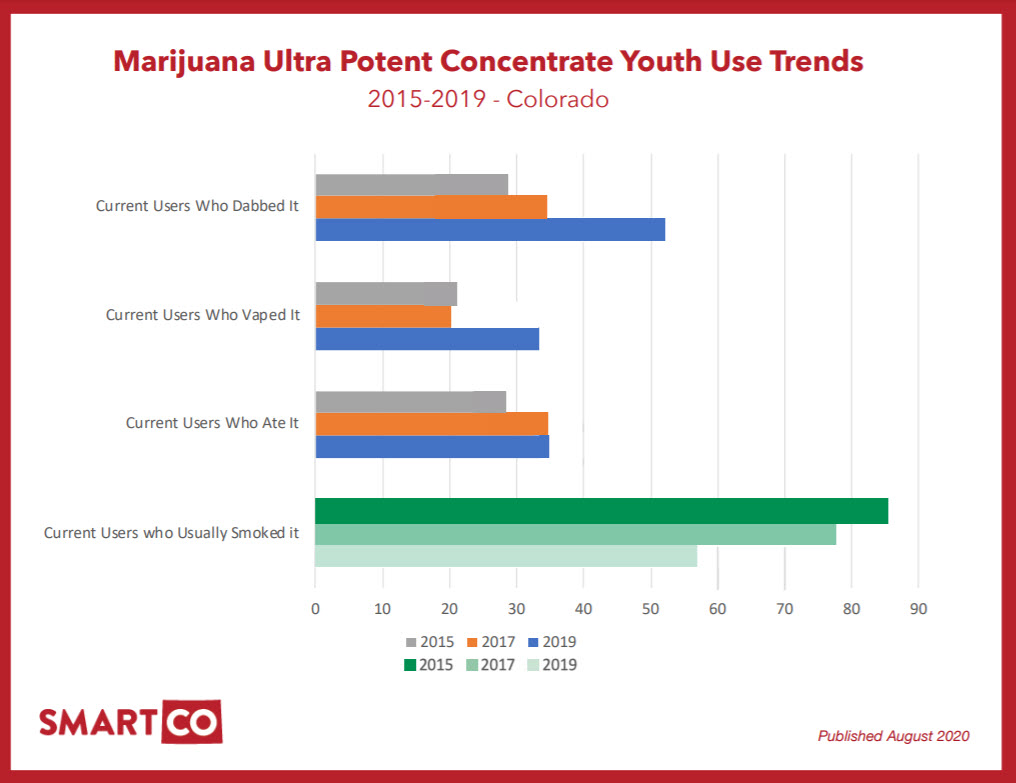
Media Release 4 August 2020
A new survey just released by the state of Colorado has found that marijuana use has increased in the last two years with nearly 21% of young people in the state reporting past month use. Notably, use in young teens (aged 15 and younger) has significantly increased by 15.5% from 2017 (the last time data was collected).
According to the data, part of the Healthy Kids Colorado Survey, since 2017, past month marijuana use among those aged 15 or younger has increased 14.8%, 16 or 17-year-olds has increased 3.0%, and 18 or older has increased 1.9%. Overall, marijuana use amongst all age groups has risen 6.2%.
In a disturbing development, teens report an alarming increase in their use of ultra-potent cannabis products in the form of dabs and vapes. More than half of high school students (52%) who use marijuana reported that they dab marijuana to get high – up from 34.4% just two years ago. This is based on surveys of over 53,000 middle and high school students statewide in Colorado last year.
“Dabbing” is a method of inhaling highly concentrated THC (commonly referred to as hash oil, wax or shatter) using a blow torch-heated delivery system commonly referred to as a dab rig. THC is the main high-inducing chemical in marijuana.
The survey results also show a 69% increase in students vaping marijuana in two years. Among high school students who used marijuana in the past 30 days, 34.3% reported vaping it, up from 20.3% in 2017.
In addition to highlighting the increases in dabbing and vaping, the Colorado Department of Public Health and Environment noted that the percentage of youth who drove after using marijuana more than tripled in two years. According to the state, 32.4% of youth drove a vehicle after using marijuana in the past month, a statistically significant increase from 9% in 2017.
Other recent research about legal cannabis also reveals a sobering statistic. In states where recreational marijuana has been legalised, teenagers are suffering higher rates of addiction. The study of 505,796 respondents was carried out by researchers from New York University’s School of Medicine. It compared use of the drug before and after legalisation in the US. The proportion of people aged 12 to 17 who reported cannabis use disorder grew from 2.18 percent to 2.72 percent.
The Substance Abuse and Mental Health Services Administration (SAMHSA) released the 2017-2018 National Survey on Drug Use and Health (NSDUH) State Estimates in December 2019.
- Past year and past month marijuana use among 12 to 17 year-olds in “legal” states increased around 3.5%, each from 2016-2017 to 2017-2018.
- Past year and past month marijuana use among 18 to 25 year-olds increased nearly 4.4% each from 2016-2017 to 2017-2018
- While 23.8% of 12 to 17 year-olds in non-legal states perceive a risk from smoking marijuana once a month, only 17.4% in “legal” states perceive such a risk
- One study found cases of Cannabis Use Disorder (CUD) in young people in “legal” states grew 25% following legalization (Cerda et. al., 2019).
“This latest data puts to rest the wild claims by drug advocates that somehow – and miraculously – youth use of drugs is going to decline if we legalise cannabis,” says spokesperson Aaron Ironside.
“Drug users should receive all the help they can to overcome their addiction and to become drug-free, but the health, rights and protection of the general public and especially our young people should take precedence over the rights of individuals to get high and who want to normalise drug use in our communities.”
